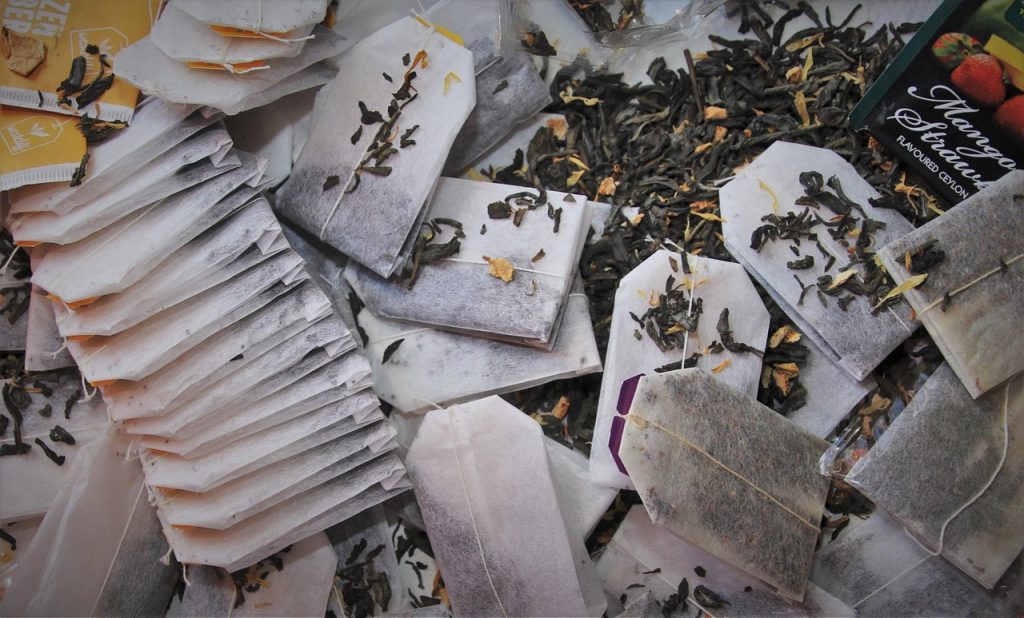Discover the hidden gems of organic tea cultivation as you enter a world of pure indulgence. Join us on a journey as we discover the radiant rewards of this timeless tradition, from rich flavors to unparalleled health benefits. Prepare to be awestruck by nature’s splendor and learn how cultivating tea organically can not only satisfy your taste buds but also uplift your mind, body, and soul. So make yourself a cup of organic tea and join me as we explore the world of organic tea.
The Benefits of Organic Tea Cultivation

Organic tea cultivation is a distinct and sustainable method of growing and producing tea, with numerous advantages over traditional tea farming methods. Organic tea cultivation has numerous advantages, ranging from improved flavor profiles to a healthier cup of tea. In this section, we will go over each of these advantages in greater depth.
Flavor Profile Enhancement
One of the primary benefits of organic tea cultivation is that the flavor profile of the tea improves. This is because organic tea farmers pay close attention to their tea plants’ growing conditions, ensuring that they receive the proper amount of sunlight, water, and nutrients. This produces tea leaves that are rich in flavor and aroma, resulting in a much more enjoyable drinking experience. Furthermore, organic tea farmers frequently use traditional techniques such as hand-picking tea leaves and sun-drying them, which helps to preserve the tea’s natural flavor and aroma.
Health Benefits
One of the primary benefits of organic tea cultivation is that the flavor profile of the tea improves. This is because organic tea farmers pay close attention to their tea plants’ growing conditions, ensuring that they receive the proper amount of sunlight, water, and nutrients. This produces tea leaves that are rich in flavor and aroma, resulting in a much more enjoyable drinking experience. Furthermore, organic tea farmers frequently use traditional techniques such as hand-picking tea leaves and sun-drying them, which helps to preserve the tea’s natural flavor and aroma.
Environmental Sustainability
Organic tea cultivation is also environmentally friendly. Organic tea farming helps to reduce soil and water pollution by using natural fertilizers and avoiding the use of harmful chemicals and pesticides. It also encourages the growth of other plants and animals in the surrounding area, which promotes biodiversity. Furthermore, organic tea farmers frequently employ traditional techniques passed down from generation to generation, which aids in the preservation of the natural environment and the prevention of soil erosion.
Support of Traditional Techniques
Organic tea cultivation also supports and preserves traditional techniques. Traditional tea-growing techniques have been passed down from generation to generation in many tea-growing regions, and are regarded as an important part of the local culture and heritage. However, due to the increased use of modern, often harmful farming methods, these techniques are in danger of extinction. We help to ensure that these traditional techniques are preserved for future generations to enjoy by supporting organic tea cultivation.
The Organic Tea Production Method
Organic tea cultivation necessitates meticulous planning and attention to detail, from soil preparation to final harvesting and processing of tea leaves. This section will go over each step of the organic tea cultivation process in greater depth.
Preparation of the Soil
The preparation of the soil is the first step in the organic tea cultivation process. This entails carefully assessing soil conditions such as pH and nutrient content to determine the best approach to soil preparation. Organic tea farmers frequently use natural soil improvement methods such as composting and crop rotation to increase soil fertility and improve the overall health of the tea plants.
Selection of Tea Plants and Seeds
The next step in the organic tea cultivation process is the selection of tea plants and seeds. Organic tea farmers frequently use high-quality, locally sourced seeds and plants that have been carefully selected for their suitability to the growing conditions in the region. They also pay close attention to the genetic characteristics of the tea plants, making sure they are disease-resistant and appropriate for the local environment.
Planting and Care of the Tea Plants
After the soil has been prepared and the tea plants and seeds have been selected, it is time to plant the tea. Organic tea farmers use traditional planting techniques such as hand planting to reduce soil disturbance and preserve the natural environment. To ensure healthy growth and development, tea plants require careful care and attention after planting, including regular watering and fertilizing.
Harvesting and Processing the Tea Leaves
The harvesting and processing of tea leaves is the final step in the organic tea cultivation process. Organic tea farmers use traditional techniques, such as hand-picking and sun-drying tea leaves, to preserve the tea’s natural flavor and aroma. They also use gentle processing methods, such as rolling and fermentation, to keep the tea leaves’ quality and purity.
Organic Tea Production in the Future
Organic tea cultivation’s future is one of expansion and innovation, driven by rising consumer demand for organic products and technological advances in organic farming. This section will look at some of the key trends and developments influencing the future of organic tea cultivation.
Growing demand for organic products
The growing demand for organic products is one of the key drivers of the future of organic tea cultivation. Customers are becoming more aware of the health and environmental benefits of organic food and beverage products, and they are opting for organic tea to support environmentally friendly and sustainable farming practices. This rising demand for organic tea is expected to continue in the coming years, creating a lucrative market for organic tea farmers and processors.
Technological advancements in organic farming
Another important trend influencing the future of organic tea cultivation is technological advancements in organic farming. As organic farmers strive to increase efficiency and productivity, they are turning to new technologies such as precision farming and data analytics to help optimize their operations. These technologies enable organic farmers to make more informed crop management decisions, from soil preparation and planting to harvesting and processing. This contributes to the efficiency and sustainability of organic tea farming, making it a more appealing option for farmers and consumers alike.
Challenges and solutions in organic tea cultivation
While the future of organic tea cultivation appears promising, there are several obstacles to overcome. Providing organic tea farmers with the resources and assistance they need to succeed is one of the most difficult challenges. This could include financial assistance, training and technical assistance, and market access. To address these issues, organic tea farmers and organizations are working together to develop innovative solutions, such as cooperative marketing and distribution initiatives, to help boost organic tea’s market competitiveness.

Organic tea cultivation is a valuable and sustainable farming practice that is gaining traction with consumers. Organic tea is a great choice for those looking for a healthy and responsible beverage option because of its improved flavor profile, health benefits, and environmental sustainability. Organic tea cultivation is meticulously managed, from soil preparation to harvesting, to ensure the highest quality tea leaves. The future of organic tea cultivation is bright, as consumer demand continues to grow and new technologies and solutions are developed to help overcome challenges and increase competitiveness in the market. Overall, organic tea cultivation is a great example of how responsible and sustainable farming practices can produce high-quality, healthy products that benefit both the environment and consumers.
1. Organic Farming. US Department of Agriculture, www.usda.gov/topics/organic-farming.
2. Organic Tea Production : Organic Trade Association www.ota.com/resources/organic-tea-production.
3. Organic Agriculture Statistics and Emerging Trends. NAS Service, 2019, www.nass.usda.gov/Publications/AgCensus/2019/Online_Resources/Organic_Agriculture/Organic_Agriculture.pdf.
4.The Benefits of Drinking Organic Tea www.healthline.com/health/food-nutrition/benefits-of-drinking-organic-tea.
5. The Future of Organic Agriculture. The Organic Center, www.organic-center.org/the-future-of-organic-agriculture/.
6. Precision Farming in Organic Agriculture:. Journal of Cleaner Production, vol. 235, 2019, pp. 858-867., doi:10.1016/j.jclepro.2019.07.294.


